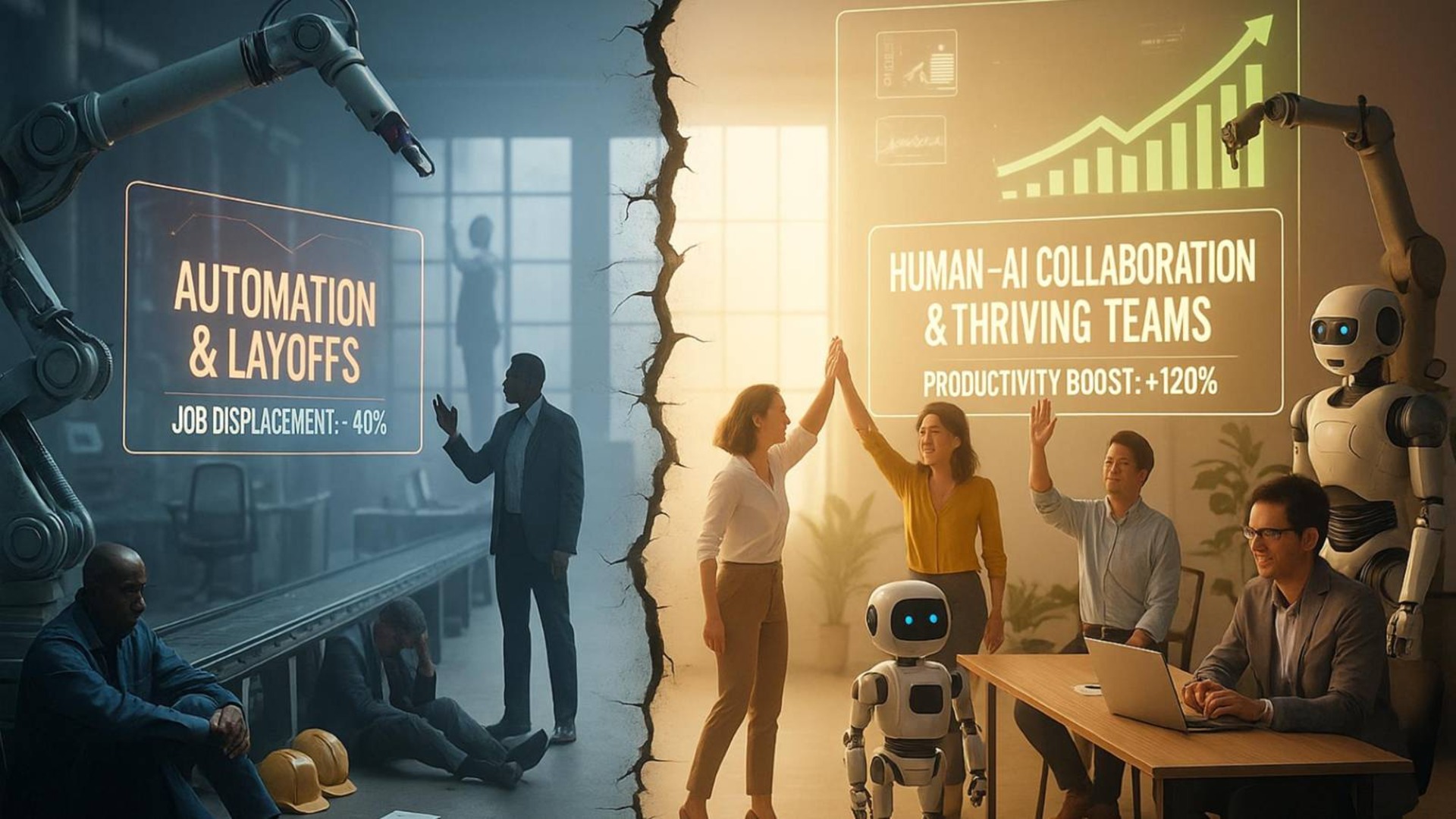
Two global giants recently made opposing bets on humanity. Accenture announced it would exit 22,000 employees on a “compressed timeline” — those deemed unable to reskill fast enough for AI roles.
Meanwhile, Walmart pledged to keep its workforce steady at 2.1 million, betting that every employee could evolve alongside AI.
This isn’t just another restructuring story. 👉 It’s the opening salvo in a corporate war that will determine which companies survive the next five years — and which become cautionary tales.
The entry-level crisis tells the whole story. Big Tech slashed new graduate hiring by 25% this year — while demanding three years of AI experience for “entry” positions.
It’s the ultimate Catch-22: You can’t get hired without AI experience, and you can’t get AI experience without getting hired. An entire generation stands locked outside its own future.
But while some companies fortify their walls, others are demolishing them entirely — the difference between seeing talent as a cost to control or a capacity to expand.
Welcome to the age of the Frontier Firm — organizations that stopped asking “How can AI help us work better?” and started asking “What if we rebuilt everything from scratch?”
🏦 Case in point: BOQ Group, the Australian bank, gave Microsoft Copilot to every employee. The result?
Frontier Firms aren’t just using AI; they’re reimagining work itself. In these organizations, AI isn’t a department or a dashboard — it’s a design principle.
In India, 93% of business leaders plan to deploy AI agents as workforce multipliers — not tools, not assistants. They’re not replacing humans; they’re amplifying them.
💡 The divide crystallizes around a simple question:
Do you see AI as a substitute for human intelligence — or a multiplier of human potential?
Accenture sees substitution. Their calculus: reskilling veterans isn’t viable when you need AI skills yesterday. It’s efficient, logical — and utterly shortsighted.
Because here’s what the spreadsheets miss 👇
Walmart gets this. CEO Doug McMillon frames it differently — creating opportunities for everyone to “make it to the other side.”
Yes, some roles will disappear. But new ones will emerge — and their people will be ready.
Frontier Firms share this philosophy. They know the most powerful AI in the world is useless without humans who understand context, navigate ambiguity, and create meaning from chaos.
They’re building hybrid intelligence — human judgment augmented by machine capability.
Their approach breaks every rule:
✅ Treat AI not as an IT upgrade, but a total business redesign
✅ Invest in people before technology
✅ Rebuild workflows from scratch — don’t just automate what exists
The results? Productivity gains that make past efficiency improvements look like rounding errors. More importantly, they’re creating entirely new categories of value that neither humans nor machines could achieve alone.
💔 The hard truth? Most companies won’t make this transition. They’ll cling to old models, shed talent they deem obsolete, and wonder why their AI investments yield diminishing returns.
They’ll become digital ghost towns — all technology, no soul.
But for those brave enough to bet on human potential? They’re not just surviving the transformation — they’re defining it.
💬 The workforce divide isn’t between companies that have AI and those that don’t. It’s between companies that amplify humanity and those that abandon it.
The companies that win won’t automate people out of work — they’ll automate them into their next evolution.
To learn more about Sharp Decisions, get in touch with us here. For more insights, follow us on LinkedIn and Twitter, and find job opportunities on our careers page.